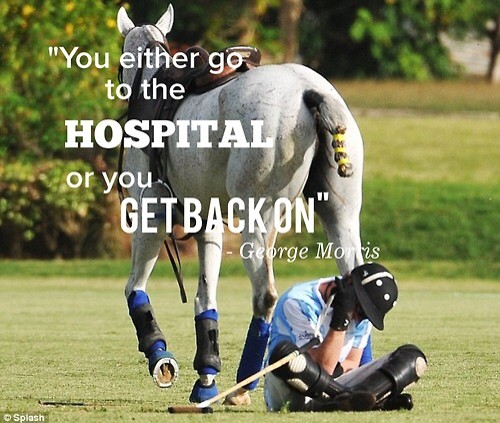
Concussions in equestrian athletes
Horse riding is a sport in which the risk of (serious) injury is comparable to extreme sports such as rugby, motor racing and football. Many riders choose not to seek help after a fall. This happens because they don't want to appear weak, want to continue their riding routine and often have no idea of the severity of a concussion.
From January to April 2010, 94 riders were examined using a questionnaire. This questionnaire was developed to, among other things, discover what the concussion-knowledge level of the equestrians was. The equestrians rode in various disiplines; jumping, dressage, eventing and polo. Most of the equestrians rode more than 15 years.
All equestrians had experienced a fall of their horse. Despite the use of a cap, all equestrians indicated that they have had medical issues after an head-trauma. More than half of the equestrians were back on their horse within 5 days, and a few stated that they got back on immediately. Almost three-quarters of the equestrians decided to ride again without consultating a doctor. Nearly half of the riders stated that children had to get back on straight away.
What this article clearly shows is that few equestrians have knowledge of concussion and the severity of a head injury. Despite the use of caps, there are still many (serious) head injuries in riders. Many instructors do have little knowledge about dealing with a head injury correctly. Many mediacal issues can be prevented by better education on this matter.
What do you do after a head-trauma? How do you feel about "Either go to the hospital or get back on"?
Expert opinion by Sophie Delemarre
I learnt from childhood on, "you must immediately get back on your horse, or you will no longer dare!". In the equestrian sport we have the unwritten rule that you either go to the hospital or you get back on. Only since I am a physical therapist and started to learn more about the severity of head-traumas I started to realize how bizarre this is.
> From: Heather et al., Sports Health 6() (2014) 136-138 (Epub ahead of print). All rights reserved to Nova Southeastern University, Fort Laderdale, Florida and University of Colorado School of Medicine, Denver, Colorado. Click here for the online summary.


